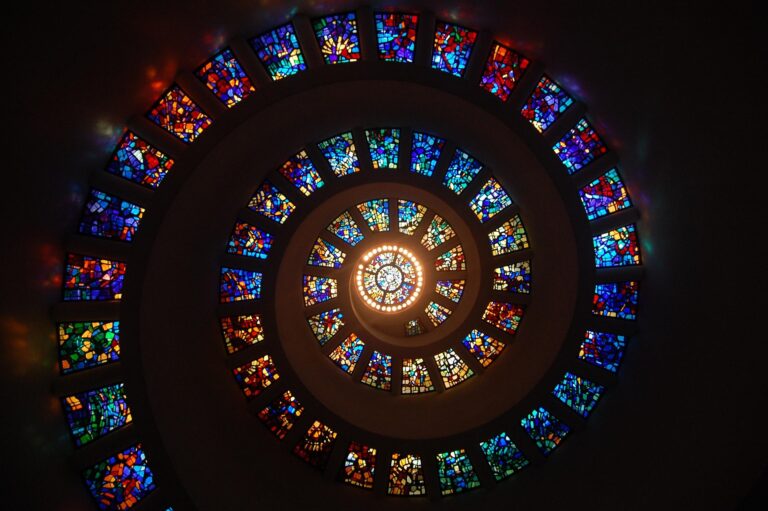What’s the difference between growth that happens to us — and growth we choose? This article explores the quiet turning points that lead to conscious self-development and what it truly means for those walking that path.
At Estmind, we recently had the chance to speak with people who have been walking the path of conscious self-development for some time. These conversations were filled with insight, sincerity, and quiet wisdom. The people we interviewed had all reached a place where they could clearly name what personal development means to them, what motivates them to keep growing, and what challenges they continue to face.
The journey of conscious self-development is not always easy. But once someone has taken the first real step, they rarely turn back. In this blog post, we share the thoughts and themes that emerged from these honest and meaningful interviews.
Growth or conscious self-development?
Have you ever wondered what personal growth really is, and how it shows up in your life? And what’s the difference between growing consciously and unconsciously?
Growth is a natural part of life. We all change. Some changes happen whether we like it or not — aging, going to school, learning from experience, working, going through life events. This kind of change can be passive, something that just happens to us, often shaped by circumstances or other people.
If we let others or outside events steer our path, we may end up living someone else’s dreams instead of our own. We might even believe that life is too uncertain, too unpredictable, and that we don’t really have a say in where we’re going.
But conscious self-development is different. It’s active. It’s personal. People who walk this path reflect on what they’ve lived through. They learn from their experiences and choose to grow. They take responsibility for their journey. They decide who they want to be and become.
This is not reacting to life — this is leading your life.
What leads us to grow consciously?
The people we spoke to had different reasons for stepping onto this path, but we noticed three common starting points:
- A life-shaking event,
- Inner dissatisfaction,
- A quiet knowing from early on that life is more than what we see.
Let’s explore each one briefly.
Life events that shake us awake.
Some of the people we spoke with had gone through very difficult times: divorce, burnout, depression, the death of a loved one. These events brought deep emotional shock. To cope, many turned to psychologists, counselors, or spiritual guides. But the real turning point came when they began to ask deeper questions: How do I deal with these emotions? What do I do next?
They wanted to find peace within themselves. That longing led them to new tools, new ways of thinking, and eventually — conscious growth.
The quiet discomfort within.
For others, the change began with a quiet inner voice. At first it whispered: Something isn’t right. I can’t go on like this.
Over time, that voice grew louder. When the discomfort became too strong to ignore, something shifted. A new strength woke up inside — a force that moved them forward. That’s when new questions arose: What do I want? What brings me joy? How do I want to live my life?
A gentle inner knowing from childhood.
Some people have felt since childhood that the world is more than what meets the eye. They may have had a grandmother, a neighbor, or a teacher who introduced them to spirituality or a deeper way of seeing life. Something in them recognized this immediately. These people often followed the expected path — school, university, a career, maybe a family. But inside, they always knew their soul was searching for something else. Many are sensitive, intuitive people, closely connected to the unseen world.
Self-development as way of living
When asked what self-develpment means to them, most people answered with ease: It’s simply a part of life. It’s not something separate — it happens all the time. It’s woven into every relationship, every decision, every emotion.
Conscious self-devleopment is ongoing work with yourself. One of the best mirrors for this work is our interaction with others. Relationships reveal our patterns. People reflect parts of ourselves back to us — and we also project our feelings, dreams, and fears onto them. If we pay attention and stay present, these moments become powerful teachers. What emotions does this situation bring up in me? What does it tell me about myself? This awareness helps us grow, day by day.
Some people said they no longer need extra motivation to self-development — it has become a natural part of their life. A lifestyle. For others, the motivation comes from a sincere wish to know themselves deeply and live in full acceptance. They want to live with joy, to feel whole and authentic. They want to discover their true potential and live it out.
And from that clarity, new questions emerge: Who am I? What truly matters to me? How can I live in a way that is good for me, for others, for nature, and for the world?
Is it always this beautiful?
Of course not. Like all paths, this one comes with its own challenges.
Many people mentioned doubts — Am I on the right path? Am I making the right choices? It’s not always easy to receive critical feedback or face our own patterns, especially when strong emotions are triggered.
And even though nearly everyone said that kindness and compassion — toward themselves and others — are among their core values, they also admitted that this is one of the hardest parts: To remain kind in difficult moments, especially toward yourself.
Once you’ve tasted it, there’s no going back
People arrive at conscious self-development in different ways. Their paths may differ, but their longing often sounds the same:
- to know themselves more deeply;
- to live more fully and authentically;
- to discover and express their true potential;
- and to feel a quiet joy and purpose in everyday life.
Many described it as a homecoming — a return to self, to alignment. And once someone has tasted that kind of life — even for a moment — there’s no going back.
At Estmind, we believe that conscious self-development is a beautiful, lifelong journey — and no one has to walk it alone. If you feel called to explore your inner world with a kind and steady companion, try out our AI coaching and other self-reflection tools.





